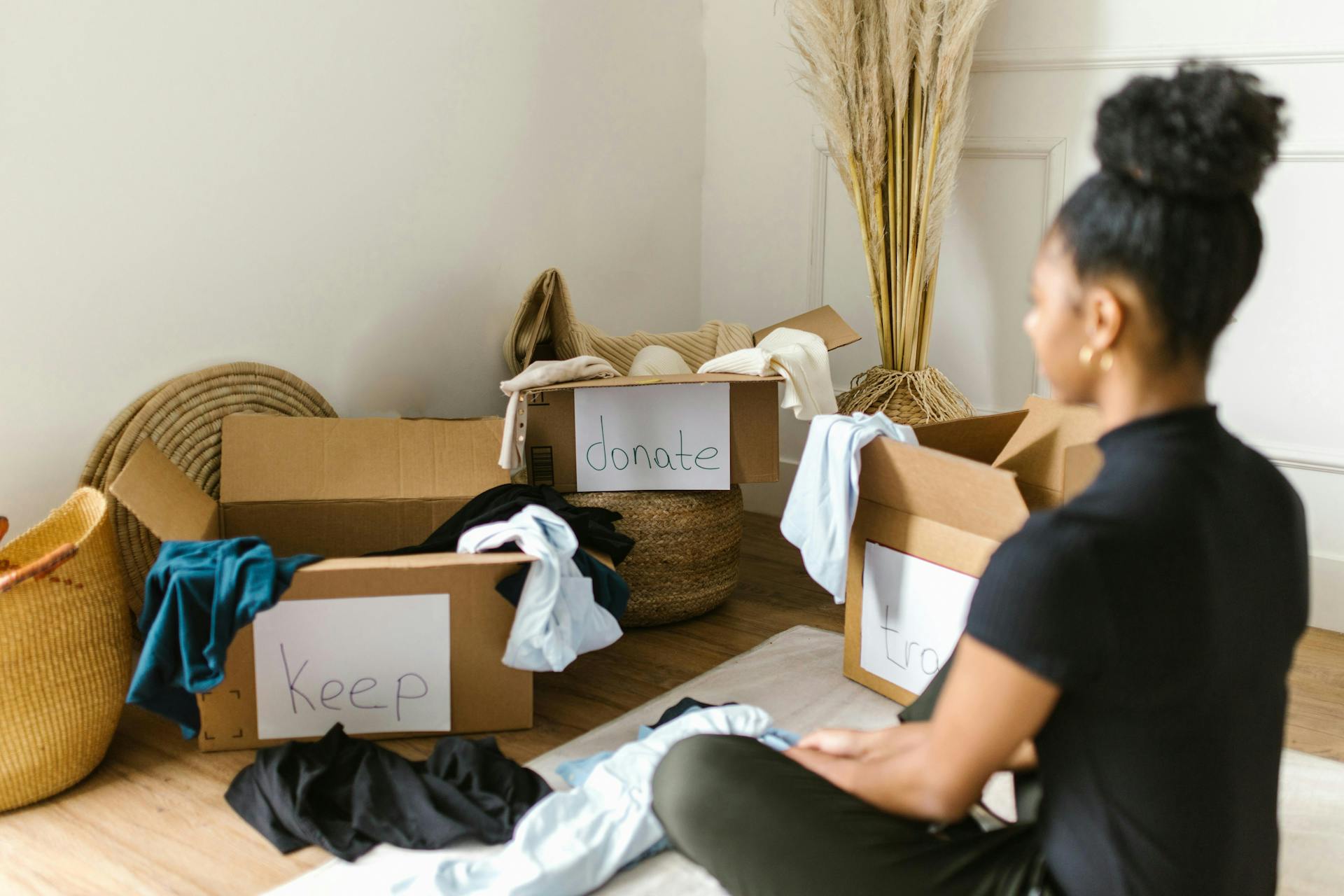The Psychology of Clutter: How Storage Solutions Can Improve Mental Well-Being
Find your Smart Storage™ unit.
We have locations across the United States providing onsite StoreEase Virtual Customer Service™ and 2 Minute Move In® contactless rental.
We have locations across the United States providing onsite StoreEase Virtual Customer Service™ and 2 Minute Move In® contactless rental.
We all have those corners of the house (or the chair) where things mysteriously pile up and linger. Clothes we never wear, papers we never filed, the random knick-knacks all pile up and can cause anxiety or make you feel overwhelmed. Keeping a clean home can help you ease your mind. StoreEase wants to help people relieve the burden of cluttered belongings this Mental Health Awareness Month.
Clutter isn't just unsightly, it's a constant reminder of unfinished tasks and can make it hard to relax. Physical clutter bombards our brains with extra stimuli, constantly signaling that there's work to be done and can contribute to procrastination or decision fatigue. Each object becomes a tiny decision to make – keep, donate, or toss? This creates background mental noise that adds to our stress. Studies even associate cluttered homes with higher levels of cortisol, the stress hormone.
The hardest part of decluttering is often the emotional attachment to items. Decluttering often involves more than just deciding what stays and what goes. Humans can form emotional attachments to objects – unused gifts might hold a touch of obligation, outgrown clothes can carry a sense of longing for the past, and unfinished projects can represent aspirations we haven't yet reached.
It's natural to feel these connections, but it's important to recognize when they start to hold us back. Does keeping an item bring genuine joy, or does it stir up feelings of guilt or regret? Decluttering provides the chance to evaluate these emotional ties. Perhaps a thank-you note is a way to appreciate a gift while letting it go, or maybe a photo album can preserve the memories of a special outfit. By consciously choosing what surrounds us, we make space for both clarity and the things that truly matter.
The act of decluttering does more than clear physical space. It sends a powerful message to your brain: you are in control, you can make positive change, and you deserve a peaceful environment. Decluttering lets us reduce overwhelming feelings, practice decision-making, and rediscover a sense of calm in our homes.
Getting rid of things we don't use or love can be emotionally tough. There might be sentimental reasons, guilt, or even fear about letting go. But when we declutter, we're not just making space – we're practicing decision-making, reclaiming control over our environment, and learning to prioritize what truly matters.
Getting rid of things is only half the battle. Once we've decluttered, smart storage solutions are our best friends. It's about finding designated spaces for the things we do keep. This way, your possessions are not a source of stress, but readily accessible when needed. Having a well-organized home means less time wasted searching for things and a greater sense of calm.
StoreEase has locations all across the country. Find one near you to help keep your belongings safe after decluttering.
Cleaning out your space can feel like a huge task, but it doesn't have to be! Start with one drawer, one shelf, even one box. Set small goals for yourself by setting a 15 minute timer or cleaning out a few drawers at a time. You will be amazed how much you can accomplish. There are many resources available online, and even professional organizers who can help if you're truly overwhelmed.
This Mental Health Awareness Month, consider the link between your physical environment and your inner world. Focus on progress, not perfection. Decluttering can be a powerful act of self-care. As you make room in your home, you could be making much-needed room in your mind, too.
